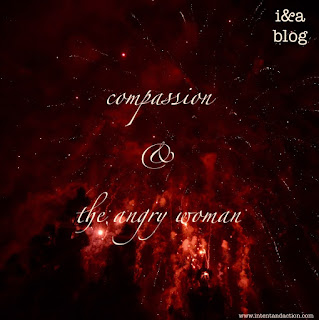Fear. It seems to be everywhere these days as it wraps us in its cold embrace. Although the sun of hope may be shining, we cannot feel its warmth for we are wrapped in layer upon layer of dread. We may close the blinds and hunker down convinced that if we ignore the fear, it will go away. But, it doesn’t. Instead we quiver in fear’s embrace.
What can we do to release the paralysis of fear? How can we move from the darkness even as we feel our spark of hope sputter and flutter? We begin by acknowledging that we may be blind to possibilities, deaf to opportunity, and mute to our longings for hope.
But, within each of us is a kernel, no matter how small, of belief that this, too, shall pass and life will once again be filled with the warmth of hope. We live in awareness of possibility unfolding in the moment. We do not expect something to flare across the darkness and reignite our spark. We anticipate that it will happen.
My story is simple one. I honestly attempt to live a life of compassion — to do good not expecting a return, but anticipating that the beauty of the world is revealed again and again. Unfortunately that does not always happen until it does.
In a moment of despair, I had an unexpected conversation with a woman. What she told me had me wondering how she could have know the intimacies of a phone conversation. How did she know who I was talking to? I wondered if she were more angel than human. Then, I realized that I could argue with myself about ethereal vs human messenger or I could focus on the message.
As I helped her with the mundane task of choosing a concealer, she looked me in the eye and said, “You are a good person. I remember you.” Then she recounted a time in which I had a phone conversation with a coworker who was frustrated. She said that I reminded my coworker that it was just a job and that we were #inthistogether. She echoed a phrase I use over and over again.
Although I cannot recall this exact interaction this woman recounted, in her words I felt a spark of hope arcing across a fear-filled expanse of nothingness. It a burst of light, I saw where my ember cowered. As she reminded me, “You are a good person,” my spark exploded with hope. And, then she took her concealer and was gone.
In the end it doesn’t matter if she was an angel or a human or a bit of both. She was an igniter of light in the encroaching dark. She stood witness and held space, so I could find the way back to my own glowing spark.
Fear may encroach. Darkness may overwhelm, but as long as we are #inthistogether, the dark will never overcome. Our light never goes out. It waits silently for the power of compassion to remind us who we are.
May you be the good person who reminds another of their light. May you be reminded of your own light. And, may your light shine brightly as compassion’s presence in a scary world.
Vanessa F. Hurst, ms, is a Neural Synchrony™ facilitator, professional speaker, and author who weaves her inner wisdom into all she touches. Her books are A Constellation of Connections: Contemplative Relationships and Engaging Compassion Through Intent & Action. Vanessa assists clients in navigating their life paths with intuition. Contact Vanessa @ vanessa@intentandaction.com for keynotes, programs, and consultations.
Twitter: @fyrserpent / ©2018







